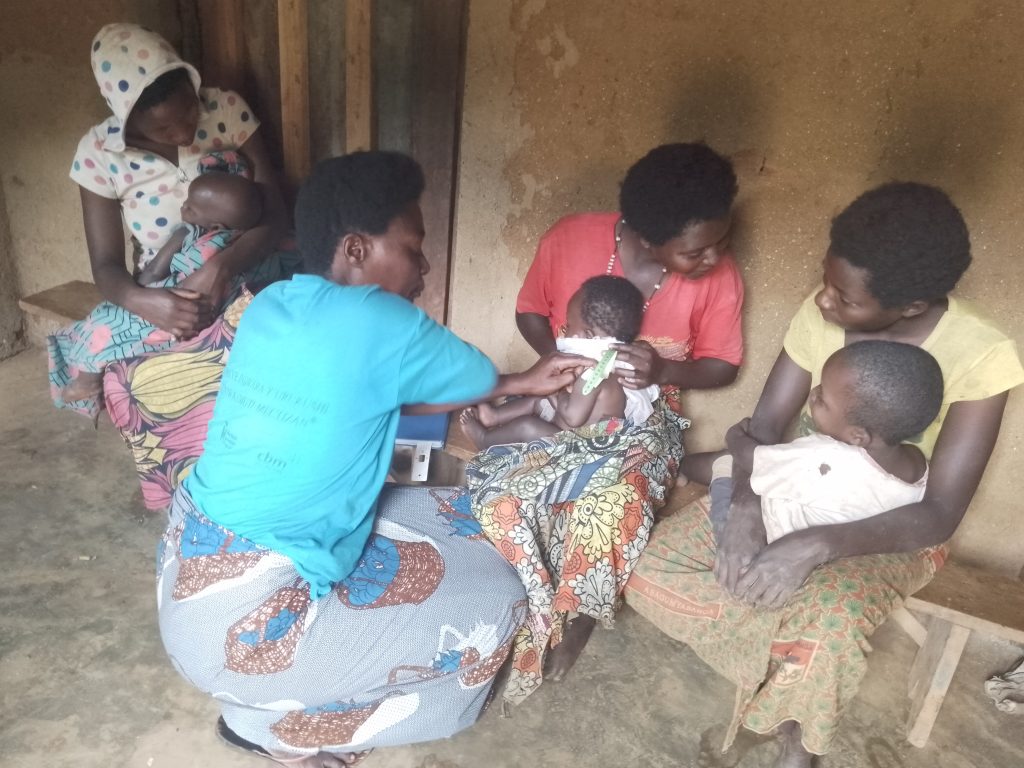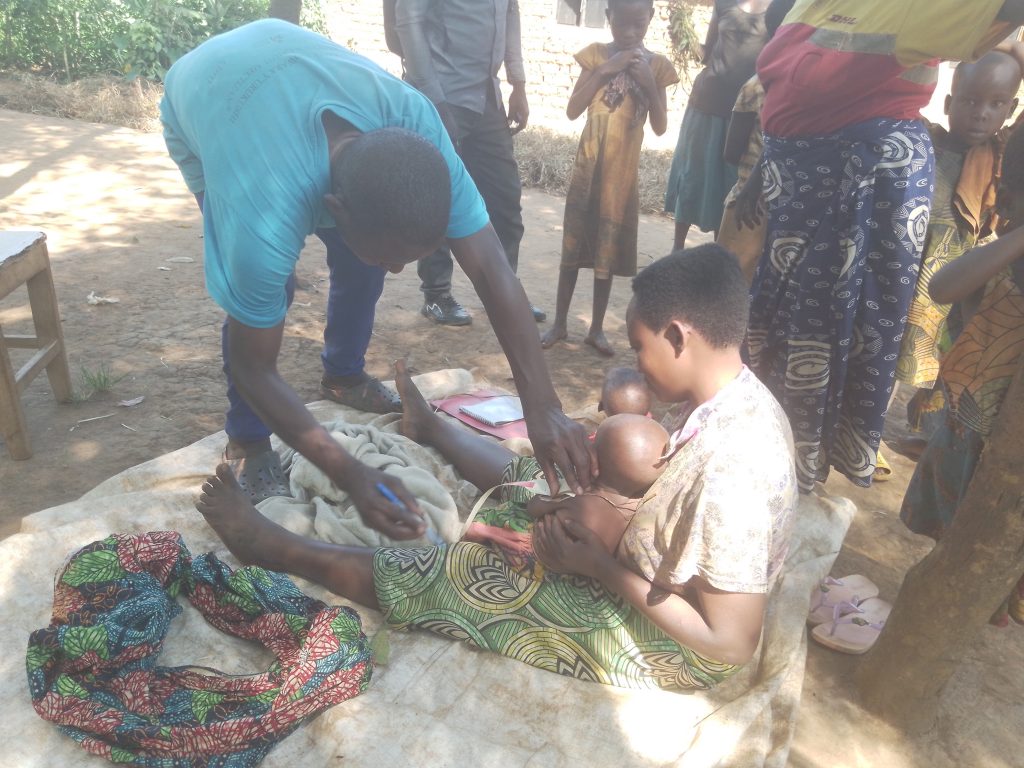Information campaigns, community mobilization, screening campaigns and case follow-up are essential in the fight against the scourge of malnutrition. The ACORD-IPROSARUDE group, as part of the Nkuriza project, remains mobilized as close as possible to the needs in the hills and neighborhoods of Cibitoke province. In the latest screenings, out of 99,573 children screened in general, 2,818 were found to be suffering from moderate malnutrition and 104 from severe malnutrition.
The Nkuriza Project’s community-based approach to screening, involving the measurement of Brachial Perimeter (BP) by community health workers and other Nutrition Support Groups, offers hope in the fight against Severe Acute Malnutrition in Cibitoke province. At the last screening in the province, out of 99,573 children screened, at least 2,818 were found to be moderately malnourished, and a further 104 acutely malnourished.
According to Mr. Claver Nsengiyumva, nutrition expert in Cibitoke province, all screened acute and moderate malnourished children will be systematically cared for in Foyers d’Apprentissage de Récupération Nutritionnelle (FARN). In these homes, acutely or moderately malnourished children will receive special treatment under the supervision of well-trained light mothers and community health workers.
“During this period, nutritional education sessions and cooking demonstrations are organized for the mothers of sick children and other participants in the home, to build their capacity in the various ways of combating malnutrition. Weight monitoring of malnourished children under treatment will also be carried out during these sessions, to assess the children’s nutritional status using the branchial bracelet.

The brachial perimeter bracelet is used to assess a child’s nutritional status by measuring the circumference of his or her arm. The band used is color-coded for different measurement intervals. Green indicates a good state of health, orange shows that there is a risk of undernutrition, and red shows the most serious cases, i.e. severe acute malnutrition, which must be treated urgently as they present a high risk of death.
The Nkuriza project, implemented by the ACORD-IPROSARUDE consortium in the Cibitoke and Bubanza provinces, will ensure early treatment of acute malnutrition.
E.Allickan Niragira


Recent Comments